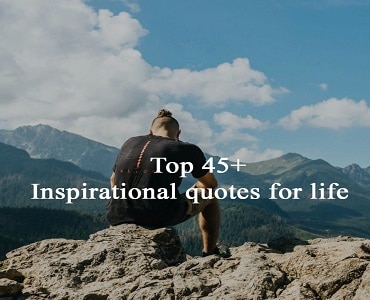Who is Immanuel Kant
Immanuel Kant, (born April 22, 1724, Königsberg, Prussia [now Kaliningrad, Russia]—died February 12, 1804, Königsberg), German philosopher whose comprehensive and systematic work in epistemology (the theory of knowledge), ethics, and aesthetics greatly influenced all subsequent philosophy, especially the various schools of Kantianism and idealism.
Kant was one of the foremost thinkers of the Enlightenment and arguably one of the greatest philosophers of all time. In him were subsumed new trends that had begun with the rationalism (stressing reason) of René Descartes and the empiricism (stressing experience) of Francis Bacon. He thus inaugurated a new era in the development of philosophical thought.
Immanuel Kant Quotes
1. We are not rich by what we possess but by what we can do without.
2. He who is cruel to animals becomes hard also in his dealings with men. We can judge the heart of a man by his treatment of animals.
3. Act in such a way that you treat humanity, whether in your own person or in the person of any other, never merely as a means to an end, but always at the same time as an end.
4. Enlightenment is man’s release from his self-incurred tutelage. Tutelage is man’s inability to make use of his understanding without direction from another. Self-incurred is this tutelage when its cause lies not in lack of reason but in lack of resolution and courage to use it without direction from another. Sapere aude! ‘Have courage to use your own reason!’- that is the motto of enlightenment.
5. Look closely. The beautiful may be small.
6. One who makes himself a worm cannot complain afterwards if people step on him.
7. Two things fill the mind with ever-increasing wonder and awe, the more often and the more intensely the mind of thought is drawn to them: the starry heavens above me and the moral law within me.
8. I had to deny knowledge in order to make room for faith.
9. All our knowledge begins with the senses, proceeds then to the understanding, and ends with reason. There is nothing higher than reason.
10. Whereas the beautiful is limited, the sublime is limitless, so that the mind in the presence of the sublime, attempting to imagine what it cannot, has pain in the failure but pleasure in contemplating the immensity of the attempt
11. For peace to reign on Earth, humans must evolve into new beings who have learned to see the whole first.
12. Two things fill the mind with ever new and increasing admiration and awe, the more often and steadily we reflect upon them: the starry heavens above me and the moral law within me. I do not seek or conjecture either of them as if they were veiled obscurities or extravagances beyond the horizon of my vision; I see them before me and connect them immediately with the consciousness of my existence.
13. Seek not the favor of the multitude; it is seldom got by honest and lawful means. But seek the testimony of few; and number not voices, but weigh them.
14. Out of the crooked timber of humanity, no straight thing was ever made.
15. The busier we are, the more acutely we feel that we live, the more conscious we are of life.
16. Laziness and cowardice are the reasons why so great a portion of mankind, after nature has long since discharged them from external direction (naturaliter maiorennes), nevertheless remains under lifelong tutelage, and why it is so easy for others to set themselves up as their guardians. It is so easy not to be of age. If I have a book which understands for me, a pastor who has a conscience for me, a physician who decides my diet, and so forth, I need not trouble myself. I need not think, if I can only pay – others will easily undertake the irksome work for me.
That the step to competence is held to be very dangerous by the far greater portion of mankind.
17. Rules for happiness: something to do, someone to love, something to hope for.
18. Genius is the ability to independently arrive at and understand concepts that would normally have to be taught by another person.
19. The death of dogma is the birth of morality.
20. But only he who, himself enlightened, is not afraid of shadows.
21. Space and time are the framework within which the mind is constrained to construct its experience of reality.
22. Thoughts without content are empty, intuitions without concepts are blind.
23. Have patience awhile; slanders are not long-lived. Truth is the child of time; erelong she shall appear to vindicate thee.
24. We are enriched not by what we possess, but by what we can do without.
25. But to unite in a permanent religious institution which is not to be subject to doubt before the public even in the lifetime of one man, and thereby to make a period of time fruitless in the progress of mankind toward improvement, thus working to the disadvantage of posterity – that is absolutely forbidden. For himself (and only for a short time) a man may postpone enlightenment in what he ought to know, but to renounce it for posterity is to injure and trample on the rights of mankind.
26. Dare to know! Have the courage to use your own intelligence!
27. Treat people as an end, and never as a means to an end
28. How then is perfection to be sought? Wherein lies our hope? In education, and in nothing else.
29. The reading of all good books is like a conversation with the finest minds of past centuries.
30. Act only according to that maxim whereby you can at the same time will that it should become a universal law.
31. An age cannot bind itself and ordain to put the succeeding one into such a condition that it cannot extend its (at best very occasional) knowledge , purify itself of errors, and progress in general enlightenment. That would be a crime against human nature, the proper destination of which lies precisely in this progress and the descendants would be fully justified in rejecting those decrees as having been made in an unwarranted and malicious manner.
32. Man must be disciplined, for he is by nature raw and wild.
33. There is something splendid about innocence; but what is bad about it, in turn, is that it cannot protect itself very well and is easily seduced.
34. Law And Freedom without Violence (Anarchy)
Law And Violence without Freedom (Despotism)
Violence without Freedom And Law (Barbarism)
Violence with Freedom And Law (Republic)
35. Skepticism is thus a resting-place for human reason, where it can reflect upon its dogmatic wanderings and make survey of the region in which it finds itself, so that for the future it may be able to choose its path with more certainty. But it is no dwelling-place for permanent settlement. Such can be obtained only through perfect certainty in our knowledge, alike of the objects themselves and of the limits within which all our knowledge of objects is enclosed.
36. The light dove, in free flight cutting through the air the resistance of which it feels, could get the idea that it could do even better in airless space. Likewise, Plato abandoned the world of the senses because it posed so many hindrances for the understanding, and dared to go beyond it on the wings of the ideas, in the empty space of pure understanding.
37. In all judgements by which we describe anything as beautiful, we allow no one to be of another opinion.
38. As nature has uncovered from under this hard shell the seed for which she most tenderly cares – the propensity and vocation to free thinking – this gradually works back upon the character of the people, who thereby gradually become capable of managing freedom; finally, it affects the principles of government, which finds it to its advantage to treat men, who are now more than machines, in accordance with their dignity.
39. Enlightenment is man’s emergence from his self-incurred immaturity.
40. Have the courage to use your own reason- That is the motto of enlightenment.
41. Two things fill my mind with ever-increasing wonder and awe, the more often and the more intensely the reflection dwells on them: the starry heavens above me and the moral law within me.
42. Nothing is divine but what is agreeable to reason.
43. Marriage…is the union of two people of different sexes with a view to the mutual possession of each other’s sexual attributes for the duration of their lives.
44. But although all our knowledge begins with experience, it does not follow that it arises from experience.
45. An action, to have moral worth, must be done from duty.
46. Coffee! Coffee!
47. Morality is not properly the doctrine of how we may make ourselves happy, but how we may make ourselves worthy of happiness.
48. Only the descent into the hell of self-knowledge can pave the way to godliness.
49. If the truth shall kill them, let them die
50. The people naturally adhere most to doctrines which demand the least self-exertion and the least use of their own reason, and which can best accommodate their duties to their inclinations.
51. Two things fill the mind with ever new and increasing admiration and awe, the oftener and more steadily we reflect on them: the starry heavens above and the moral law within.
52. Without man and his potential for moral progress, the whole of reality would be a mere wilderness, a thing in vain, and have no final purpose.
53. A good will is good not because of what it effects, or accomplishes, not because of its fitness to attain some intended end, but good just by its willing, i.e. in itself; and, considered by itself, it is to be esteemed beyond compare much higher than anything that could ever be brought about by it in favor of some inclinations, and indeed, if you will, the sum of all inclinations. Even if by some particular disfavor of fate, or by the scanty endowment of a stepmotherly nature, this will should entirely lack the capacity to carry through its purpose; if despite its greatest striving it should still accomplish nothing, and only the good will were to remain (not of course, as a mere wish, but as the summoning of all means that are within our control); then, like a jewel, it would still shine by itself, as something that has full worth in itself
54. All false art, all vain wisdom, lasts its time but finally destroys itself, and its highest culture is also the epoch of its decay.
55. It was the duty of philosophy to destroy the illusions which had their origin in misconceptions, whatever darling hopes and valued expectations may be ruined by its explanations.
56. Enlightenment is man’s emergence from his self-imposed immaturity. Immaturity is the inability to use one’s understanding without guidance from another.
57. In the kingdom of ends everything has either a price or a dignity. What has a price can be replaced by something else as its equivalent; what on the other hand is raised above all price and therefore admits of no equivalent has a dignity.
58. Nature is beautiful because it looks like Art; and Art can only be called beautiful if we are conscious of it as Art while yet it looks like Nature.
59. The schematicism by which our understanding deals with the phenomenal world … is a skill so deeply hidden in the human soul that we shall hardly guess the secret trick that Nature here employs.
60. Beauty presents an indeterminate concept of Understanding, the sublime an indeterminate concept of Reason.





